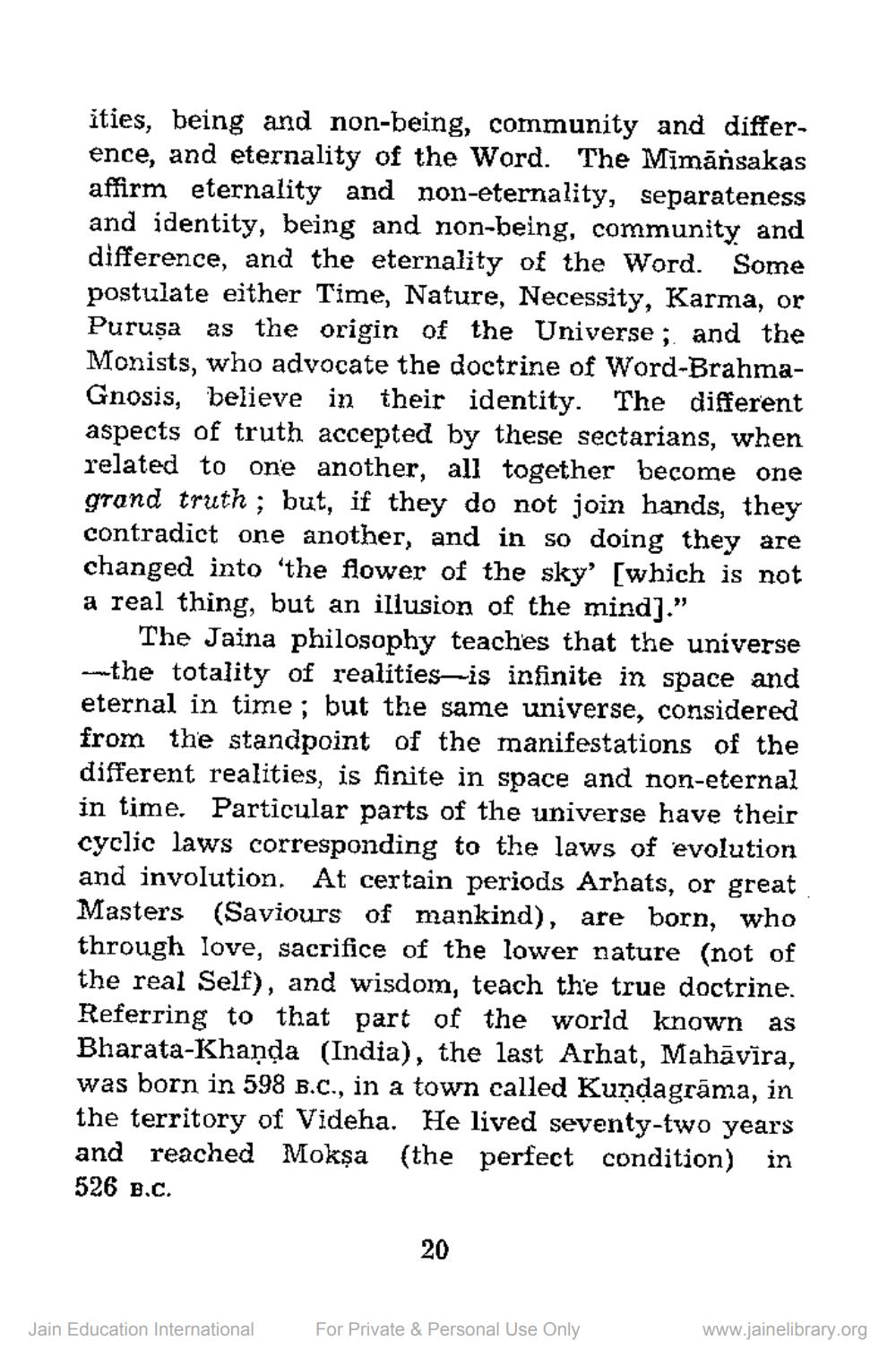Book Title: Philosophy and Psychology of Jainas Author(s): Virchand R Gandhi Publisher: Z_Selected_Speeches_of_V_R_Gandhi_002018.pdf View full book textPage 6
________________ ities, being and non-being, community and difference, and eternality of the Word. The Mimārsakas affirm eternality and non-eternality, separateness and identity, being and non-being, community and difference, and the eternality of the Word. Some postulate either Time, Nature, Necessity, Karma, or Puruşa as the origin of the Universe; and the Monists, who advocate the doctrine of Word-BrahmaGnosis, believe in their identity. The different aspects of truth accepted by these sectarians, when related to one another, all together become one grand truth ; but, if they do not join hands, they contradict one another, and in so doing they are changed into the flower of the sky' [which is not a real thing, but an illusion of the mind]." The Jaina philosophy teaches that the universe the totality of realities is infinite in space and eternal in time, but the same universe, considered from the standpoint of the manifestations of the different realities, is finite in space and non-eternal in time, Particular parts of the universe have their cyclic laws corresponding to the laws of evolution and involution. At certain periods Arhats, or great Masters (Saviours of mankind), are born, who through love, sacrifice of the lower nature (not of the real Self), and wisdom, teach the true doctrine. Referring to that part of the world known as Bharata-Khanda (India), the last Arhat, Mahāvīra, was born in 598 B.C., in a town called Kundagrāma, in the territory of Videha. He lived seventy-two years and reached Mokşa (the perfect condition) in 526 B.C. 20 Jain Education International For Private & Personal Use Only www.jainelibrary.orgPage Navigation
1 ... 4 5 6 7 8 9 10 11 12 13 14 15 16 17 18 19 20 21 22 23 24 25 26
